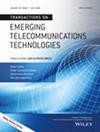Blockchain-Integrated Secure Healthcare Information Sharing via Advanced Blowfish Encryption Standard With Optimal Key Generation
Abstract
Problem
There are serious worries about the security and privacy of sensitive patient data as a result of the growing digitization of healthcare systems, particularly when sharing data across platforms. Conventional data-sharing techniques frequently depend on centralized systems, which are susceptible to illegal access and data breaches. Existing encryption techniques, such as Blowfish, lack sufficient robustness and scalability for modern healthcare applications. Additionally, managing encryption keys securely across distributed systems remains a complex challenge.
Aim
This work proposes a blockchain-integrated technology with enhanced encryption and optimal key generation to address these gaps, ensuring secure, scalable, and efficient healthcare data sharing.
Methods
In the proposed model, data sharing initiates with partitioning the healthcare data into manageable blocks, followed by encryption using an enhanced version of the Blowfish algorithm. The Improved Blowfish algorithm incorporates bitwise operations and conditional transformations to strengthen data security and flexibility in handling encrypted data. Also, the proposed work implements the Improved Pelican Optimization Algorithm (IPOA) for optimal key generation. IPOA optimizes encryption keys based on the minimizing correlation between original and encrypted data, thereby ensuring robust data protection. A blockchain is used to store encrypted data and keys, taking use of its decentralized and unchangeable structure to guard against manipulation and unwanted changes. Furthermore, the proxy re-encryption technique is employed to securely manage and distribute decryption capabilities without exposing sensitive information.
Results
Finally, the comparative analyses highlight the superiority of the proposed approach in terms of security, efficiency, and scalability over existing methods. With a correlation coefficient of 0.203887, the Improved Blowfish approach exhibits the strongest resistance, demonstrating its resilience to Fault Injection Attack (FIA).
Conclusion
The suggested model's efficacy is confirmed, showing that it can improve data security, simplify access management, and reduce the hazards connected to conventional healthcare data-sharing procedures. Thus, the integration of blockchain, advanced encryption standards, and optimized key generation algorithms offers a comprehensive solution for secure healthcare information sharing.


 求助内容:
求助内容: 应助结果提醒方式:
应助结果提醒方式:


